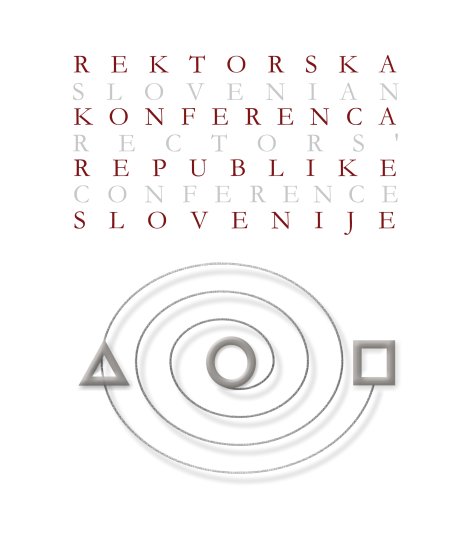Koper, 31. January 2024: As s full member of EUA the Slovenian Rectors’ Conference at its 1st correspondence session, which took place from 29. 1. 2024 to 31. 1. 2024, adopted the decision to support the EUA policy input paper on “Renewed social contract for Europe and its universities: how universities and policymakers participate in the creation of a strong, open and future-ready Europe” in the mandate of the EU institutions 2024-2029, published on January 9, 2024. The Slovenian Rectors’ Conference is a full member of EUA.
The European University Association (EUA) presented a policy input on “A renewed social contract for Europe and its universities: How universities and policy makers can work together to shape a strong, open and future-proof Europe”. The paper was published on 9 January 2024.
In this document, EUA illustrates what it calls ‘the pivotal role universities play for the future of Europe’. As such, ‘A renewed social contract for Europe and its universities’ describes how – as independent actors – universities can best serve society and contribute to addressing global challenges, while listing the framework conditions they need to thrive.
What needs to be done at European level
With eight key messages for policy makers on what should be done at European level for the next mandate (2024-2029), EUA – representing the breadth and depth of Europe’s universities – asks the leadership of the European Commission, members of the European Parliament and representatives of EU member states in the Council of the EU to:
- Strengthen the multilateral framework for cooperation
The EU must ensure that education, research and innovation policies are coordinated, making links and utilising synergies between the European Research Area (ERA), the European Education Area (EEA) and the European Higher Education Area (EHEA) and learn from the experience of cooperation with the wider Europe through the Bologna Process/EHEA to prepare for possible EU enlargement.
- Enhance the effectiveness of the European multilevel governance system
Improving coordination and links between national, regional and European policies and, at European level, facilitating national level reform implementation (e.g. the European Semester process), will foster cohesion and counter brain drain.
- Introduce a ‘university check’ prior to developing EU legislation
To assess the impact of legislation on universities and their activities (e.g. in trade, migration, the digital transformation, rule of law or strategic autonomy), this check should actively involve universities and ensure that new legislation will not hinder education and R&I activities.
- Budget for ambitious higher education, research and innovation
The next Multiannual Financial Framework must equip EU funding programmes in higher education, research and innovation with ambitious budgets that foster both excellence and inclusion. Moreover, the EU should pool resources where common European projects and initiatives add value, ensure synergies between programmes and with national and regional funding and ensure member states reach the 3% investment target for research and innovation and the 2% investment target for higher education.
- Promote universities’ global role as responsible bridge-builders and knowledge brokers
Open international cooperation should be the default option, while the higher education and research sector and policy makers must remain attentive through a case-by-case, fine-grained approach to risk assessment. Moreover, international openness is important for the role of universities in strengthening local and regional innovation ecosystems and connecting them to the world.
- Uphold the core values of institutional autonomy and academic freedom
Guaranteeing universities’ institutional autonomy is a prerequisite for modern universities to develop their institutional profiles and deliver efficiently on their missions. Protecting and fostering academic freedom is the single most important foundation for meaningful research and teaching which ultimately advances knowledge and, thereby, society.
- Develop physical and virtual infrastructure
Learners, researchers, innovators and administrators need digital structures and regulatory initiatives that facilitate cooperation across borders for the whole European continent, such as a European electronic ID, the European Blockchain Services Infrastructure and the European Interoperability Framework.
- Establish dedicated funding for university leadership development
This is crucial to support universities’ institutional development and unleash their transformative potential. Leadership skills are also an important success factor in European and transnational cooperation among universities.
For more information:
Prof. Dr. Klavdija Kutnar
President of the Slovenian Rectors’ Conference
